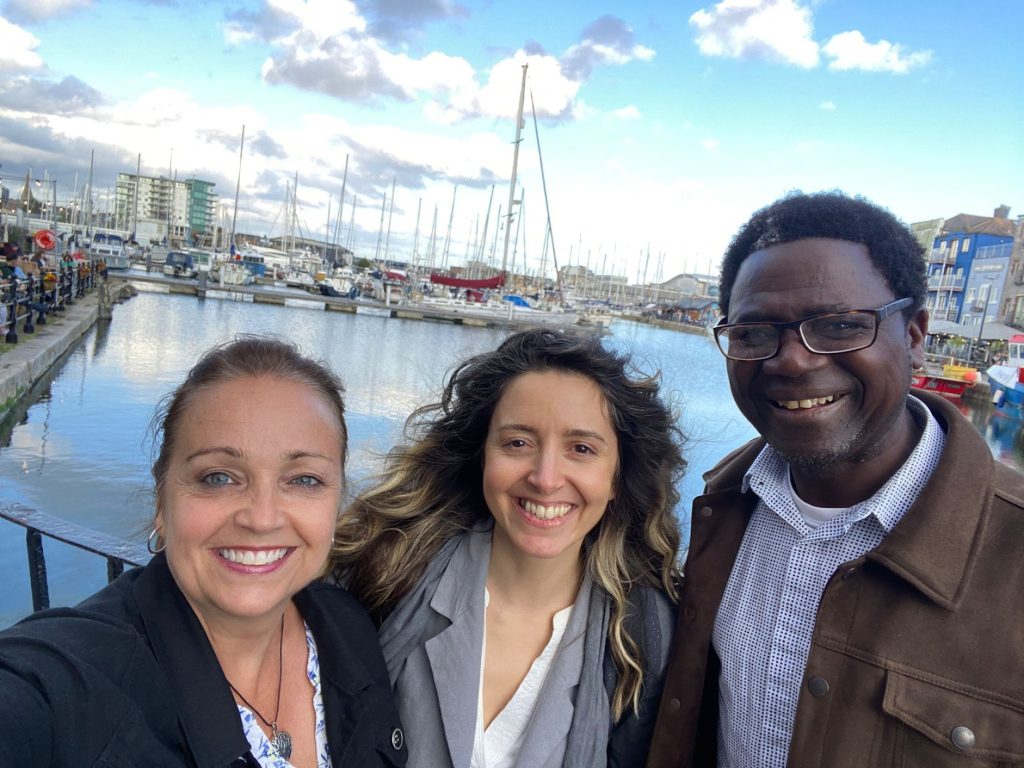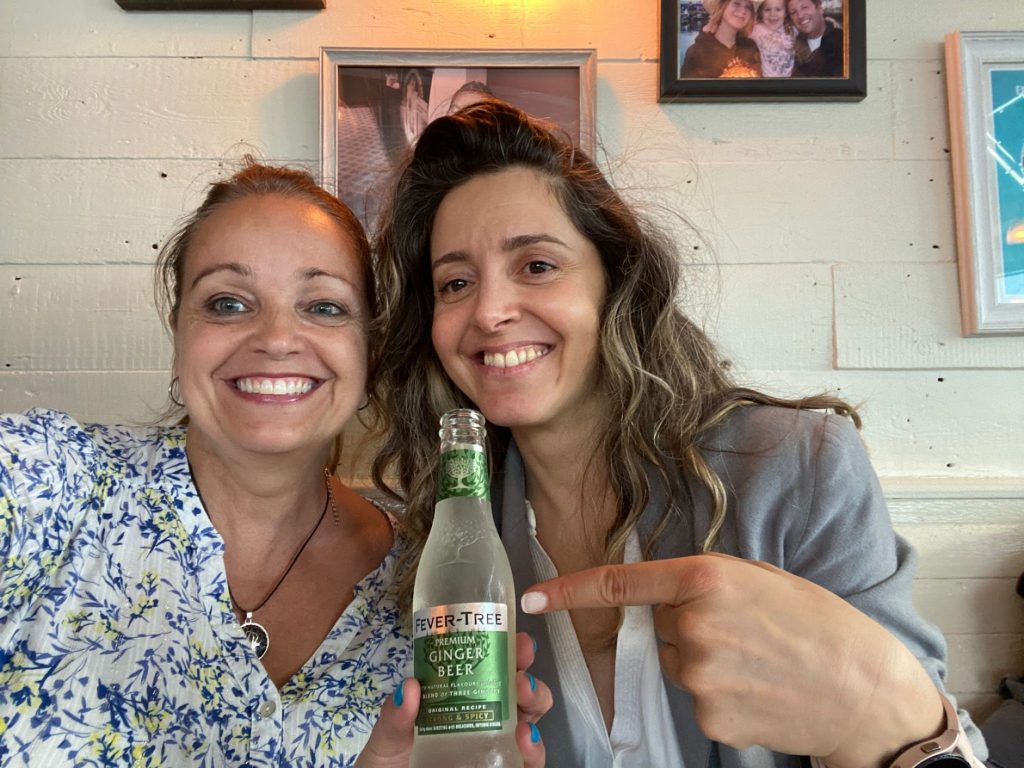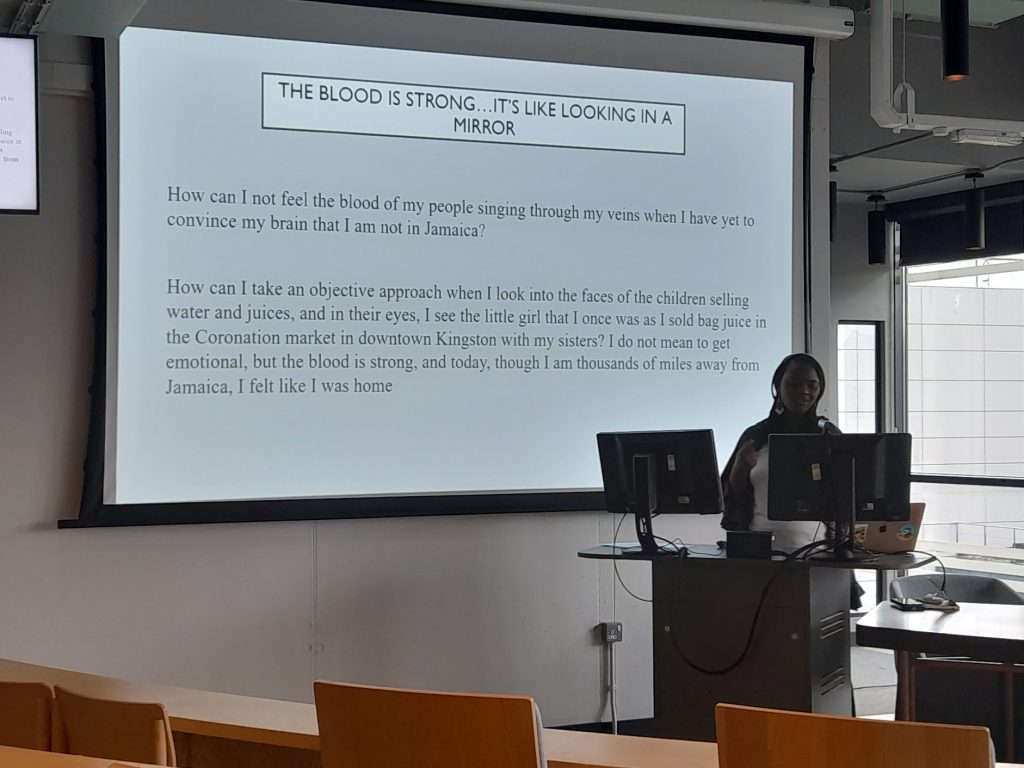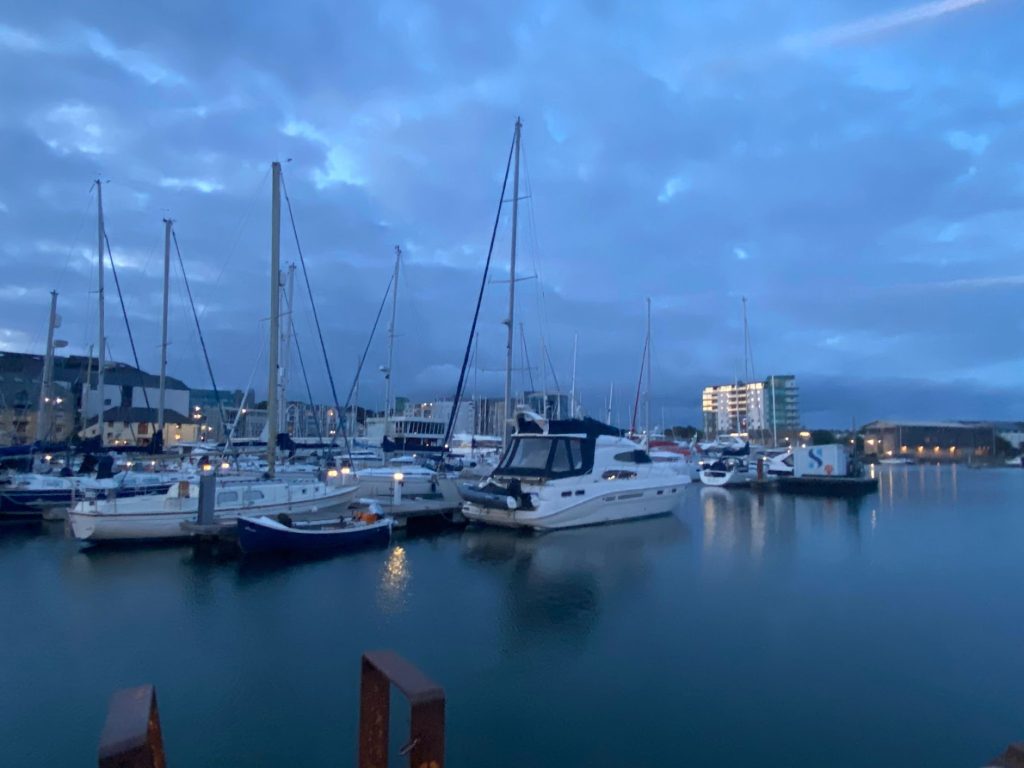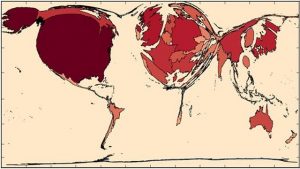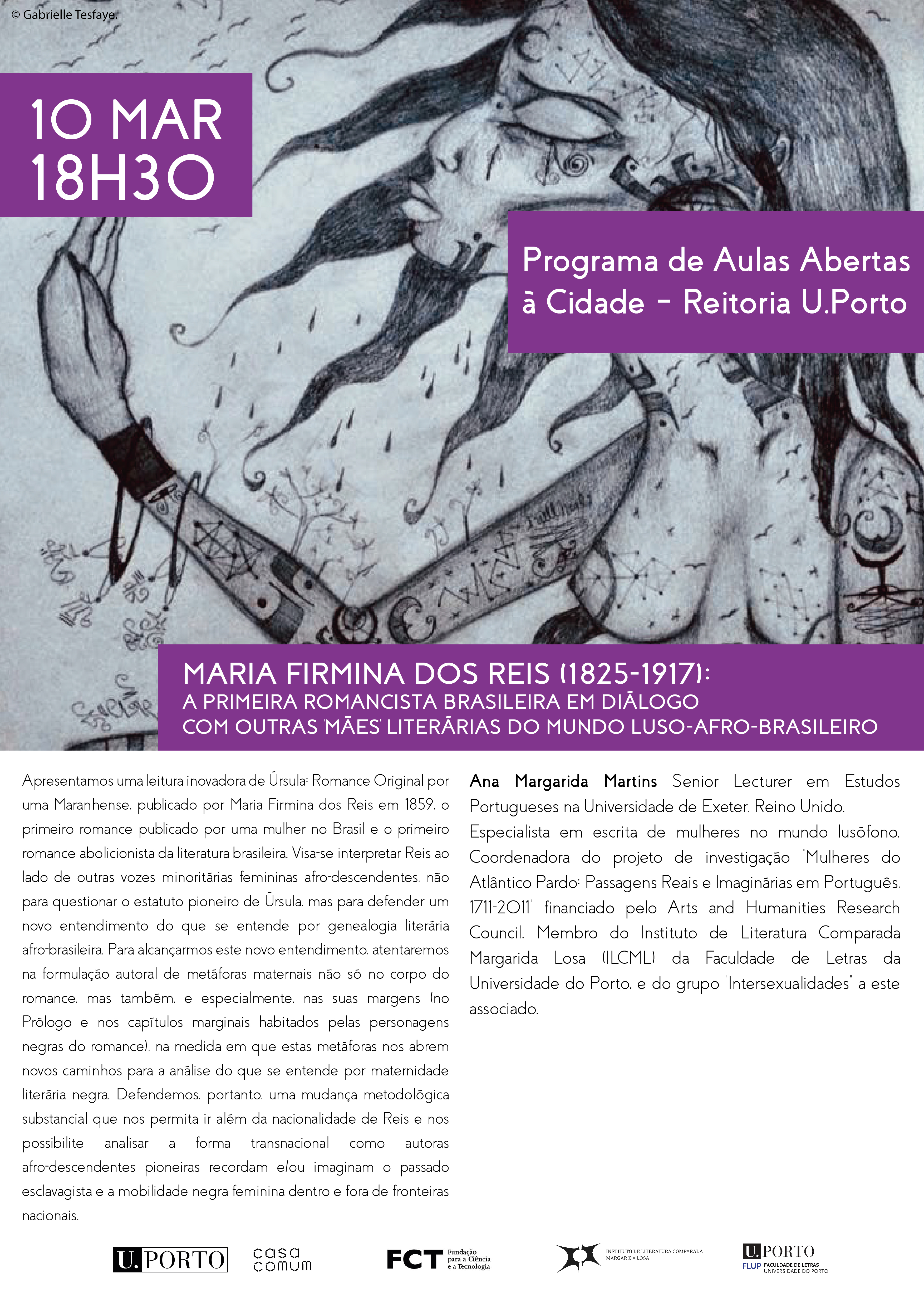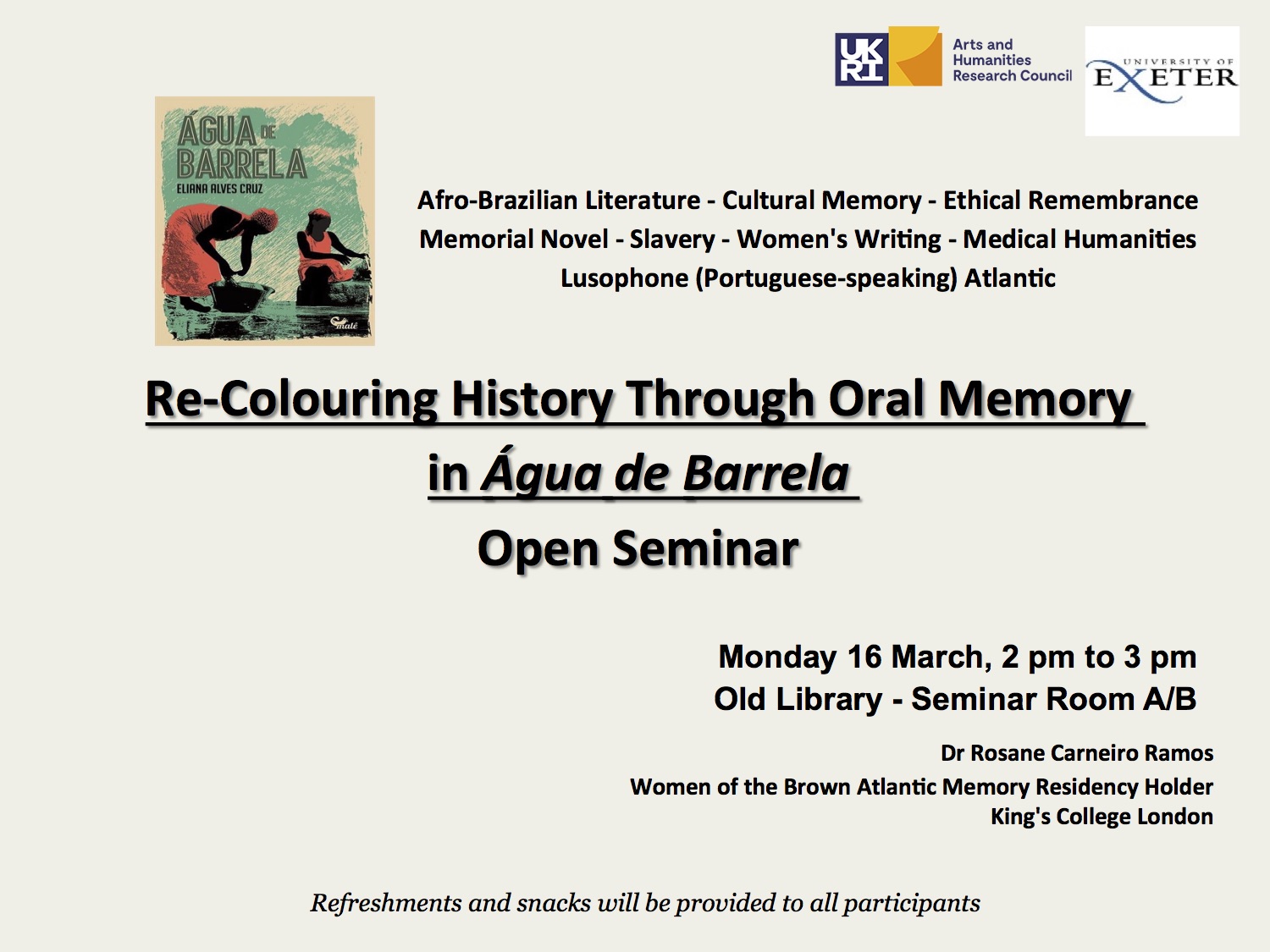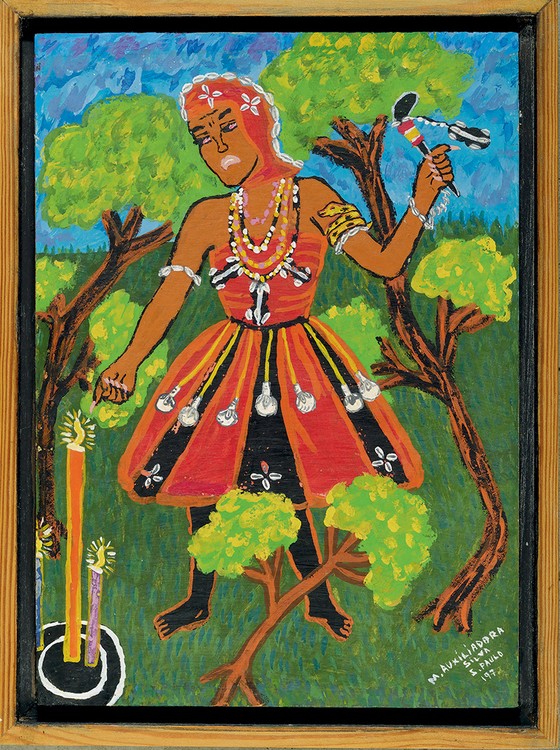
Cork was a brilliant conference. It was like reuniting with old friends and colleagues after a very, very long time. The last ABIL conference I had attended was in Edinburgh in 2019. I was pregnant at that time, and struggling at home with someone who didn’t want me to continue breastfeeding my daughter. It was stressful, to say the least.
I feel I’ve walked a long way to get to this place. This Cork. My state of mind matched the Irish weather, warm and light. Somehow, I wasn’t on hold. I was moving, physically at least. I was imagining my way out of the rut. Looking for Passages.
In the previous conference I had attended, in Plymouth, I had noticed an eagerness in the crowd to know more about the expression “Brown Atlantic,” so this time around I decided to start my paper with a work-in-progress definition of the term. Only then did I move on to the specific analysis and theoretical concepts I’m playing with in order to read Conceição Evaristo’s work.
I’m drawn towards theorizing. Always have been. When I encountered the writing of Evaristo, I experienced a very strong desire for new theory. This desire was, from the start, the engine behind the Women of the Brown Atlantic project. A desire for a new vocabulary, a new set of tools that would allow for a meeting with Evaristo in her own terms, rather than attempting to read her texts under the magnifying glass of existing theory. The new theory that’s required is one that is able to keep the theoriser in a place of discomfort. Theory that extends discomfort, that names it without trying to resolve it. A sort of treadmill theory that keeps one running after what can’t be reached.
I call it Rainbow Fever.
After I delivered the paper, I sat there simmering, as usual, in the paradoxical fear of having and not having any questions. I didn’t get asked any, but it wasn’t because they didn’t exist. What I experienced was a kind of delayed feedback. I received it in the form of a text message, and later, in the form of two chats, one still in the room, following the end of the panel, and the other one over coffee.
The delayed comments I had in Cork acknowledged the difficulties inherent to the task of theorising. I am grateful to the people who offered it to me. By encouraging me to carry on, to delve deeper into the unknown, to let go of the old structures that hold back new thinking and writing, they have given me real perspective on where the debate could go. By cautioning against dualist thinking, they have provided invaluable feedback without putting me on the spot in front of the whole crowd.
Sometimes, not getting questions straight away is a sign you are being seen, heard, and cared for.
So thank you so much – you know who you are xxx

